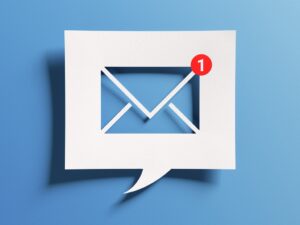How vague subject lines hurt your team’s productivity
Would you spend a few seconds thinking about subject lines to make your team more productive and alleviate stress?

Would you spend a few seconds to make your team more productive and alleviate stress?
There is an easy way to do so, but experience and conversations with colleagues tell me many ignore what works in favor of what is easy.
What helps PR pros win the game when connecting with our journalist friends can also help your internal comms and make your teams more efficient.
In my last column, I explored the trigger-warning topic that associates who become upset after receiving texts from their superiors after hours are soft. It stemmed from many European countries banning after-hours texting for employers. The actual issue was not whether these team members were unduly stressed by these messages, but rather whether each message was sent through the appropriate channel relative to its perceived importance.
Superiors were erring on the side of convenience over what was right for their employees.
Texting wasn’t the true issue. What was being communicated, when, and its perceived importance were the real problem.
If an apartment building is on fire, you don’t mail postcards to residents. You sound the alarm and scream to alert the residents. But when your neighbor fails to clean up their dog’s poop outside of your brownstone, sane people don’t pull fire alarms to get their neighbor’s attention. The importance and urgency of the message should match how it is delivered.
Many continue to use text, Slack and use other messaging channels based on their personal convenience — not considering the importance of the message, its urgency, or the recipient’s ability to find it later.
It’s the ease of finding the message that brings me to the topic of efficiency in our internal comms, and the subject of subject lines.
Convenience in your internal comms can lead to decreased productivity
I have more than two decades under my belt in the public relations game. A few journalists have told me they appreciate the unique subject lines of my pitches. Why? They sell the story and easier to search for later.
Clarity in the subject line is all it takes.
How many times have you received an email with a vague subject line? Or a blank one?
Subject: Call Me
Subject: Meeting
Subject: Urgent
Subject: <<blank>>
According to the Ragan Salary Survey & Workplace Culture Report for 2022, almost half of our fellow communicators cited ambiguous communication as a drain on productivity. Nearly 40% of those surveyed cited sorting through email as another significant drain.
Just 10 seconds of effort could eliminate this.
For example, instead of using the subject line “Meeting,” put “Meeting About Widget XX Launch Date And Budget” to help the recipient prioritize and find the email later.
True, we can now search through our digital files fairly quickly – at least on the top level – for terms such as the aforementioned Widget XX. But if Widget XX is a key priority, your computer’s search tool is going to pull up hundreds of emails and files to sort through that reference Widget XX in some way.
Not efficient.
“Call me” is another often-used subject line that could be better. emailed me with that subject line then I know why she was reaching out. And while flattered, I’m happily married. Unless your name is Carly Rae Jepsen, you need to be clearer.
Including the why in the subject line helps, but get deeper into it into the email, even if just bullets. Why? It’d be helpful if the recipient knew in advance if the call was about Widget XX, or something else. Efficiency increases if the recipient has more details. Is the request for the call to discuss the launch date of Widget XX? Budget overages? Packaging descriptions? The recipient may not have all of the info the call-requester wants at their fingertips, which then leads to them going back to determine it, another call, and greater inefficiency.
Don’t ‘subject jack’
Getting back to the idea of your computer’s embedded search tools making things easier, they only work well when you can narrow down what you’re looking for. With that in mind, please, dear reader, refrain from subject-jacking.
A subject-jack is when the content of the message thread shifts from the original subject. If the email thread turns its focus from Widget XX to Widget ZZZ, then change the subject line so it’s easier to find later. Otherwise, someone may be looking for the budget emails for Widget ZZZ and not see anything because they are disregarding the Widget XX emails.
If the productivity and efficiency of your team matter, make how you communicate matter, too.
Bill Byrne is co-founder and managing director of Remedy Public Relations. He leads a team known for helping challenger brands punch well above their weight class. His Instagram is mainly photos of his pets and craft beer. He hates Slack. He would love to connect with like-minded communicators on LinkedIn.






